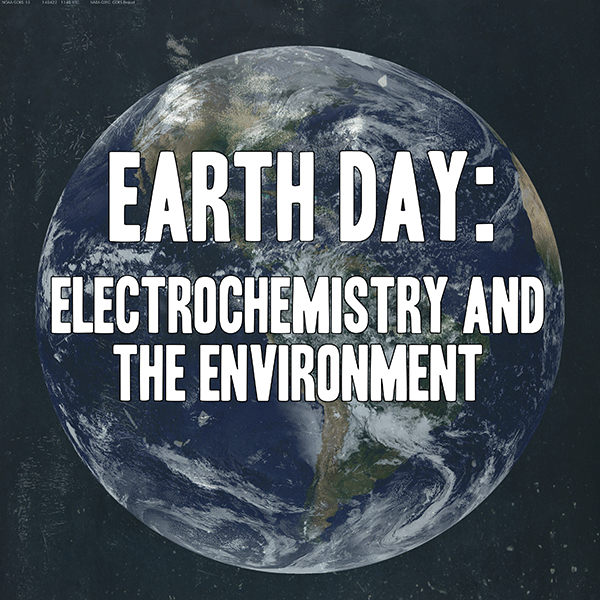We are indeed living in a unique and challenging time in human history. Never before, in the modern age, have we faced a pandemic with such a profound, global impact as COVID-19. Although we are still very much in the initial grip of this unprecedented catastrophe, it is vital—perhaps more than ever before—that we recognize and celebrate Earth Day and its 50th anniversary. (more…)
Sustainability is at the core of the research that is published in the ECS Digital Library. Electrochemists and solid state scientists and engineers are our best hope of developing the technologies that will make a difference. They are the masterminds behind the lithium batteries that run all of our mobile devices, they developed the first fuel cells and photovoltaics, and they are on the cutting edge of current research in generating and storing energy from renewable sources like solar, biofuels, even waste papaya and tomatoes. From creating more efficient systems to discovering new energy sources, electrochemists and solid state scientists are behind the most critical innovations in sustainability and renewable energy. That is why, we at ECS are excited to celebrate Earth Day this weekend.
If you still need ideas on how to spend the day, here are the top five things to do:
1. Volunteer
Help clean up a local park, beach, or river! What better way to show your appreciate for the Earth than to help her look her best? This will also help ensure the local plants and animals live a healthier life. Electrochemists and solid state scientists and engineers are tackling waste and improving living conditions around the world through novel reuse systems.
ECS member, Dr. Boryann Liaw has turned waste papaya into sugar-air batteries. Electrochemists are turning food waste like tomatoes and bread mold into energy sources for batteries and fuel cells.
Building a sustainable future

Image: NASA
Over 40 years ago, the modern environmental movement was born. Passion and concern drove a small group of twenty-somethings together in a rallying cry to create a more environment-conscious society, establishing what has become known as Earth Day.
The original Earth Day focused on the issues of pollution, but today’s modern Earth Day focuses the pressing global issue of climate change.
Global challenges
Currently, carbon dioxide levels in the air are at their highest in over 650,000 years, the global temperature has risen 1.4°F since 1880, and the sea level nearly 7” over the past 100 years.
While a few people and politicians may sill dismiss climate change, around 200 worldwide scientific organizations now formally hold the position that climate change has been caused by human action. Additionally, nearly 170 countries are preparing to sign the Paris Climate Agreement today, which will put global plans into motion in an effort to tackle the issue of rising temperatures.
The science of renewable energy
Here at ECS, we believe the path to stopping climate change and tackling these issues that are devastating the environment begins with science.
With population growth and industrialization, global energy needs continue to grow. Economic, political, and environmental issues are largely dictated by energy needs.
The modern environmental movement was born 45 years ago today. A small group of twenty-somethings with a passion for the environment rallied together to create a more earth-conscious society, establishing what has become known as Earth Day.
The original Earth Day focused primarily on the pollution issue, but this year’s Earth Day is heavily directed towards climate change and the energy infrastructure.
While there may be a war on science happening with people and politicians alike dismissing climate change as mere myth, scientists conducting research in the field state that evidence for warming of the climate system is unequivocal.
When looking at climate change on a global level, the numbers speak for themselves.
- Carbon dioxide levels are at their highest in 650,000 years
- Nine of the 10 warmest years on record have occurred since 2000
- Land ice is dropping by 258 billion metric tons per year
- Sea levels have risen nearly 7” over the past 100 years




